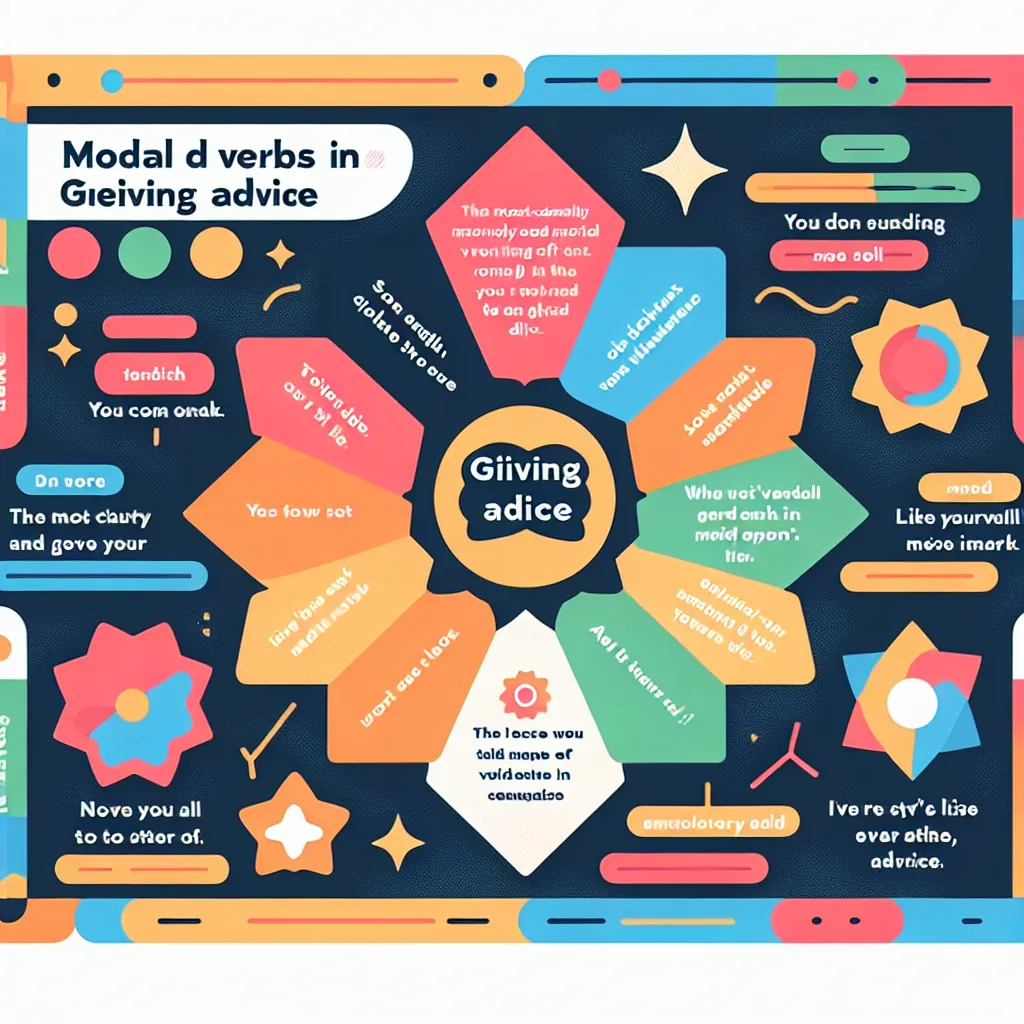Are you struggling with using modal verbs to give advice in English? You’re not alone. Many English learners find this aspect of grammar challenging, but it’s a crucial skill to master for effective communication. In this guide, we’ll explore how to use modal verbs for advice, providing you with practical tips and examples to enhance your English language skills.
Understanding Modal Verbs for Advice
Modal verbs are auxiliary verbs that express necessity, possibility, permission, or ability. When it comes to giving advice, certain modal verbs play a key role. Let’s delve into the most common ones and how to use them effectively.
The Most Common Modal Verbs for Advice
- Should
- Ought to
- Had better
- Could
- Might
Each of these modal verbs has its own nuance and level of urgency when giving advice. Understanding these subtle differences is crucial for mastering their use.
 Modal Verbs for Advice
Modal Verbs for Advice
How to Use Modal Verbs for Advice
1. Using ‘Should’ for General Advice
‘Should’ is the most common modal verb for giving advice. It suggests a recommendation or opinion about what is good, right, or wise to do.
Example: “You should study for at least two hours every day to improve your English.”
2. ‘Ought to’ for Moral Obligation
‘Ought to’ is similar to ‘should’ but often implies a moral obligation or duty.
Example: “You ought to tell the truth about what happened.”
3. ‘Had better’ for Strong Advice or Warning
This modal verb is used to give strong advice or a warning about a possible negative consequence if the advice is not followed.
Example: “You had better start your project now, or you won’t finish it on time.”
4. ‘Could’ for Suggestions
‘Could’ is used to make suggestions in a more polite or tentative way.
Example: “You could try using flashcards to memorize new vocabulary.”
5. ‘Might’ for Gentle Suggestions
‘Might’ is used to give very gentle advice or suggestions.
Example: “You might want to consider taking an online course to improve your grammar.”
Common Mistakes to Avoid
When using modal verbs for advice, learners often make certain mistakes. Here are some to watch out for:
-
Using ‘must’ for advice: ‘Must’ is typically used for strong obligations, not advice.
Incorrect: “You must take a break.”
Correct: “You should take a break.” -
Forgetting the base form after modal verbs: Always use the base form of the verb after a modal.
Incorrect: “You should to study more.”
Correct: “You should study more.” -
Adding ‘to’ after most modal verbs: Most modal verbs (except ‘ought to’) don’t require ‘to’.
Incorrect: “You could to try this method.”
Correct: “You could try this method.”
Practical Exercises to Master Modal Verbs for Advice
To truly master the use of modal verbs for advice, practice is key. Here are some exercises you can try:
-
Situation-based practice: Create scenarios and give advice using different modal verbs.
-
Rewriting sentences: Take sentences with one modal verb and rewrite them using others, noting the change in tone or urgency.
-
Role-play conversations: Practice giving and receiving advice with a partner, focusing on using a variety of modal verbs.
-
Writing an advice column: Create an imaginary advice column, responding to various problems using modal verbs for advice.
Advanced Tips for Using Modal Verbs in Advice
As you become more comfortable with basic usage, consider these advanced tips:
-
Combining modal verbs with conditionals: “If I were you, I would…”
-
Using modal verbs in the past tense: “You should have studied more for the test.”
-
Softening advice with phrases: “I think you might want to…”
-
Using modal verbs in questions to offer advice: “Why don’t you try…?”
 Advanced Modal Verb Usage
Advanced Modal Verb Usage
Conclusion
Mastering The Use Of Modal Verbs For Advice is a crucial step in becoming proficient in English. By understanding the nuances between different modal verbs, practicing regularly, and being mindful of common mistakes, you can significantly improve your ability to give advice in English. Remember, like any aspect of language learning, consistent practice is key to mastery.
For more tips on improving your English grammar, check out our guide on how to improve your understanding of modal verbs. And if you’re looking to enhance your overall English skills, don’t miss our article on tips for mastering English grammar in conversation.
Keep practicing, and soon you’ll be giving advice like a native English speaker!




